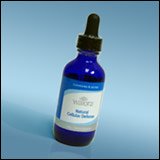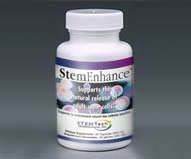
TEENSCREEN: Creating a Crisis Where None Exists © Paula Rothstein
Are you concerned that your child is having suicidal thoughts? Apparently, the U.S. government is and not because we are experiencing an epidemic of suicides. In fact, the Center for Disease Control reports that the suicide rate for ages 10 to 19 fell from 6.2 deaths per 100,000 people in 1992 to 4.6 per 100,000 in 2001. Yet, in spite of this progress, the U.S. Government wishes to get involved.
The government has been known to fail and fail miserably at so many things, mental health screening of teenagers is something they should stay far, far away from, allowing families to look after their children instead of a government corrupted by drug companies concerned only with profit.
TeenScreen is a very controversial mental illness screening program introduced by Columbia University’s Child Psychiatry Research Department – the same group that has been designated by the Food & Drug Administration to review studies on antidepressants inducing self-harm and suicide in children. Talk about a conflict of interest! The goal of TeenScreen is to screen every school-aged child before graduation for suicide and "mental disorders" using a computer survey. Those considered at risk are recommended for “treatment.” The label placed on your child is one that could stick with him or her for life regardless of validity. You should also be aware that this ability to diagnose your child, protected under the law, also allows for legal drugging of your child.
It may or may not surprise you to learn that the pharmaceutical drug companies helped fund this ill-conceived program known as TeenScreen. Those greedy companies also assisted in the development of the questionnaire your young person would be asked to fill out. The fox is officially in charge of the hen house! And TeenScreen has now been implemented in 42 states in hundreds of locations. Mandated mental health screening by school officials is merely the “tip of an insidious iceberg” that will touch all of us at some point and should not be left to play itself out.
One tactic TeenScreen officials use is to sell the child/teen on the suicide survey first and after they have the child's agreement, they later contact parents. However, not enough children were voluntarily coming forward so one idea was to encourage them by offering free movie passes and pizza parties, met with greater success (because we know suicidal kids love to eat pizza and go to the movies!!). This tactic conjures images of a stranger passing through a quiet neighborhood, slowly creeping down the street in a dark sedan, offering candy to small children in the hopes of luring them into their car! Make no mistake about it – the real agenda here is pill pushing on the most impressionable group in our society, the young.
TeenScreen also utilizes a "passive consent" form, requiring no written parental approval. The passive consent form is sent home to parents and if they fail to return it, TeenScreen considers silence to mean they have the parents consent. TeenScreen officials favor passive consent because they say it boosts their chances of screening kids to 95% as opposed to the written parental consent technique. What if the child forgets to bring the consent form home? What happens if the parent is too busy to refuse in writing? They have consented in the eyes of TeenScreen personnel.
The following is a list of some of the question that may be asked of your child, leading to a possible diagnosis of mental disorder:
Has there been a time when nothing was fun for you and you just weren't interested in anything?
Has there been a time when you felt you couldn't do anything well or that you weren't as good-looking or as smart as other people?
How often did your parents get annoyed or upset with you because of the way you were feeling or acting?
Have you often felt very nervous when you've had to do things in front of people?
Have you often worried a lot before you were going to play a sport or game or do some other activity?
Have you tried to kill yourself in the last year?
Are you still thinking of killing yourself?
Have you thought seriously about killing yourself?
Have you often thought about killing yourself??
Have you ever tried to kill yourself?
Based on the answers the child gives to the above questions he is then sent on to a "clinician", who ponders which label to use: Social Phobia? Panic Disorder? Anxiety? Obsessive Compulsive Disorder? Active Suicide Ideation? Passive Suicide Ideation?
FALSE POSITIVES EXCEED 84%!
There is an 84 to 94% chance the student will walk away falsely labeled as “suicidal” or “mentally ill” as a result of this test, something TeenScreen fails to openly disclose. The test has proven itself to be highly inaccurate.
Because the real agenda here is pill pushing, a false positive carries not just a label but possibly dangerous consequences as the student could possibly be placed on an experimental drug with numerous side effects (including suicidal tendencies!). As many as 24% of children screened are given psychotropic drugs, known to have caused more harm than the conditions for which they are prescribed.
No individual behind the development of this program has come forward with evidence that their approach is one that would prove to be even the least bit effective. TeenScreen is based on the thoroughly discredited "Diagnostic and Statistical Manual of Mental Disorders" and is being promoted as evidence based without providing any evidence.
TEENSCREEN: QUESTIONS ANSWERED
1. Does the TeenScreen Program endorse mental health screening for all teens?
The goal of TeenScreen is to screen every child in the United States by the time they're out of high school. According to TeenScreen's Director, Laurie Flynn, their long term goal is "treatment" for "those in need."
2. Does TeenScreen recommend treatment?
TeenScreen materials say they make no treatment recommendations. However, let's pose this question: If you have a child who's been asked a battery of potentially upsetting questions, has been labeled with a bogus "mental disorder", has been assigned a certain "impairment score" and then referred to a psychiatrist, what do you think the treatment will be? When TeenScreen says they do not recommend treatment it's like the gallows builder saying he didn't hang that man!
3. Is TeenScreen free?
TeenScreen's promotional materials claim their suicide survey is free. Gwen Luney, assistant superintendent for supportive services and federal programs at Hillsborough County (Florida) Schools, says TeenScreen would cost the school district roughly $200,000 a year -- $200K they don't have. "We're hesitant to commit to a new program if there's a strong possibility we'll be seeing some [money] shortfalls. Also, are we going to find a place for this [diagnosed] child to go? If so, what if the child doesn't have insurance? Who picks up the cost? Does it get passed on to the county? It can't be passed on to the school district. And the liability factor is greater now that you've identified [the at-risk student]."
Even at a very small high school like Brimfield High School, in the Peoria, Illinois area, the cost is not cheap. According to a Peoria Journal Star article dated July 11, 2004 "organizing the system and employing a part-time counselor specifically for the program is estimated to cost about $100 per student... The Brimfield High School program alone will cost around $20,000 for the first semester."
4. Where are all the schools that use TeenScreen?
It's all a big secret. According to TeenScreen's director Leslie McGuire, they are fearful there will be an uprising against mental health screening, therefore TeenScreen refuses to divulge their locations. They use a canned e-mail message: "We get a lot of requests from people who are interested in locating and speaking directly with local TeenScreen sites and this can become a burden on them. We are not authorized to give out our sites contact information unless we have requested their permission to do so."
Due to TeenScreen's secrecy and the fact that parents have the right to know if their school has TeenScreen, a search is being conducted nationwide for schools with TeenScreen. A new website exposes the discovered TeenScreen Locations.
5. What is "passive consent"? What does this really mean?
Passive Consent is way to get around written parental consent and an effective method to get more children screened. Passive consent requires parents to return a form only if they do not want their child to participate in the screening.
According to an e-mail sent by a school official concerning implementation of TeenSceen, "The interest would be to screen as many as possible, beginning in 9th grade. The Passive acceptance style was mostly discussed to increase the numbers from 50% for Consent to near 95% for Passive"
This means if a parent does not open the mail or was too busy to study the form and return it or if a child as young as 9 years old loses the form on the way home, then TeenScreen will accept that as "parental consent".
A federal law known as the Protection of Pupil Rights Act, requires written parental consent before a child undergoes a survey, analysis or evaluation. A TeenScreen newsletter discusses making screening a matter of the schools curriculum as a method to bypass this law and use passive consent instead.
According to Leslie McGuire, TeenScreen's director, 25% of their programs use passive consent. Passive consent is controversial and has already upset parents.
Note: owing to mounting national criticism by parents, the media and legislators, Leslie McGuire of TeenScreen announced that: "Effective August 1, 2006, all school-based sites will be required to obtain written ("active") consent from the parents or legal guardians of minor students... For some sites, the updated policy and forms will be a departure from the way in which they currently operate, but I want to assure you that we did not make this decision lightly and that we will be available to help make this a straightforward transition for you and your staff."
Notice Leslie says "school based sites". What about the TeenScreen sites in homeless shelters and juvenile detention centers?
Will independent schools comply with TeenScreen Headquarter's orders? This remains to been seen.
6. Are student records confidential?
No. TeenScreen officials require that all screening results be shared with them. TeenScreen says that various personnel such as school officials, various organizations conducting certain studies and other "appropriate officials" may be privy to student records and that "Screening personnel should determine with the school officials whether or not they are permitted access to student records without the formal consent of parents".
7. Does talking about suicide encourage teens to attempt suicide?
According to the U.S. Preventive Services Task Force report of May of 2004, no studies were found that directly address the harms of screening and treatment for suicide risk.
8. Is the pharmaceutical industry behind TeenScreen?
Absolutely. Their national advisory council is full of major pharmaceutical company connections.
9. How prevalent is suicide in teens?
It's very rare. For example the number is 50 per year out of over 3.5 million students in the State of Florida. Coincidentally, the number 50 is the same number of people who get hit by lightning in Florida each year.
10. Do children screened using the TeenScreen suicide survey wind up on dangerous antidepressants?
Absolutely. 9 out of 10 children referred to psychiatrists are prescribed psychotropic drugs.
11. What can I do?
E-mail your school district superintendent and ask if TeenScreen has been implemented or if there are any plans to implement it. Keep things in writing. If the answer is yes, alert other parents and voice your opposition. Let us know what you find out and what you are doing about it. File a "parental informed consent notice" with your child's school. Click here for a sample.
NO CHILD LEFT UNMEDICATED
Excerpted from Phyllis Schlafly’s article No Child Left Unmedicated, March 1, 2005. Phyllis is a columnist, commentator, author, and founder of the Eagle Forum.
Parental rights are unclear or nonexistent under these mental health screening programs. What are the rights of youth and parents to refuse or opt out of such screening? Will they face coercion and threats of removal from school, or child neglect charges, if they refuse privacy-invading interrogations or unproved medications? How will a child remove a stigmatizing label from his records?
A pilot project for screening students, called TeenScreen, resulted in one-third of the subjects being flagged as "positive" for mental health problems. Half of those were turned over for mental health treatment. If that is a preview of what would happen when 52 million public school students are screened, it would mean hanging a libelous label on 17 million American children and forcibly putting 8 million children into the hands of the psychiatric/pharmaceutical industry.
I highly encourage you to contact your child’s school to find out whether they have implemented this program or are there plans to implement this program and then get organized. I would even think writing the school and providing them with documentation that your child will not be participating in this program should help to insure that they cannot go forward without your knowledge.
-----------------------------------------------------------------------
Common Side Effects of Psychotropic Drugs
The body is an extremely complex biochemical machine, with chemical reactions and flows that occur in harmony and rhythmically one with another. They happen in specific sequences, in certain quantities, and at exact rates of speed. When a foreign substance such as a psychotropic drug is introduced into the body these flows and inner workings are disrupted. The drugs may speed up, slow down, dam up, overwhelm or deny critical metabolic substances.
This is why psychiatric drugs produce side effects. This is, in fact, why they produce any effect at all. They do not heal anything. The human body, however, is unmatched in its ability to withstand and respond to such disruptions. The various systems fight back, trying to process the foreign chemical, and work diligently to counterbalance its effects on the body.
But the body can only take so much. Quickly or slowly, the systems break down. Like a car run on rocket fuel, you may be able to get it to run a thousand miles an hour, but the tires, the engine and the internal parts were never meant for this; the machine flies apart.
Side Effects include the following:
Stimulants for “ADHD” should not be used in children under six years of age. Adverse reactions include: nervousness and insomnia, hypersensitivity, anorexia, nausea, dizziness, headaches, drowsiness, blood pressure and pulse changes, tachycardia, angina, abdominal pain, loss of appetite, weight loss and toxic psychosis. Some children have developed the involuntary tics and twitching called Tourette’s disorder.
Major tranquilizers also known as anti-psychotics, frequently cause difficulty in thinking, poor concentration, nightmares, emotional dullness, depression, despair and sexual dysfunction. Physically, they can cause Tardive Dyskinesia—sudden, uncontrollable, painful muscle cramps and spasms, writhing, squirming, twisting and grimacing movements, especially of the legs, face, mouth and tongue, drawing the face into a hideous scowl. They also induce Akathisia, a severe restlessness that studies show can cause agitation and psychosis. A potentially fatal effect is “Neuroleptic Malignant Syndrome,” which includes muscle rigidity, altered mental states, irregular pulse or blood pressure and cardiac problems.
Minor tranquilizers or benzodiazepines can cause lethargy, lightheadedness, confusion, nervousness, sexual problems, hallucinations, nightmares, severe depression, extreme restlessness, insomnia, nausea and muscle tremors. Epileptic seizures and death have resulted from suddenly stopping the use of minor tranquilizers. Thus, it is important never to stop suddenly or without proper medical supervision, even if the drugs have only been taken for a couple of weeks.
Sedative-Hypnotics frequently cause the above side effects as well as a hangover effect, apparent drunken state, lack of coordination (ataxia) and skin rash.
Antidepressants (tricyclics) can cause sedation, drowsiness, lethargy, difficulty thinking, confusion, poor concentration, memory problems, nightmares, panic feelings, and extreme restlessness; also delusions, manic reactions, delirium, seizures, fever, lowered white blood cell count (with risks of infection), liver damage, and heart attacks and strokes.
Selective Serotonin Reuptake Inhibitors (SSRIs) can cause headaches, nausea, anxiety and agitation, insomnia and bizarre dreams, loss of appetite, impotence, confusion and akathisia. It is estimated that between 10% and 25% of SSRI users experience akathisia, often in conjunction with suicidal thoughts, hostility and violent behavior.
Conclusion
If you are worried about something—a problem in life such as relationships with your friends, parents or teachers, or how your child’s school grades are going—taking any drug, illegal or psychiatric, isn’t going to solve the problem. If a drug is used to feel better when you are depressed, sad or anxious, the relief is only for a short while. If the problem is not fixed or helped you will often feel worse than before. As a drug wears off, whatever pain, discomfort or upset that was there before taking the drug can become stronger. It can make you want to keep taking the drug.













